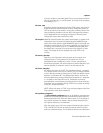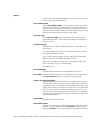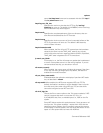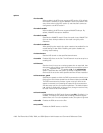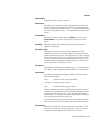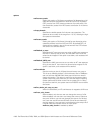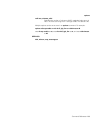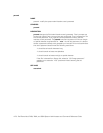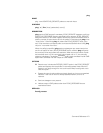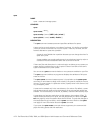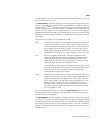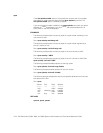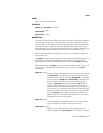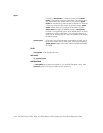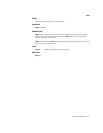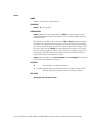
Command Reference A-71
NAME
ping - send ICMP ECHO_REQUEST packets to network hosts
SYNOPSIS
ping [ -s ] [ -Rrv ]
host
[
packetsize
[
count
] ]
DESCRIPTION
ping uses the ICMP protocols mandatory ECHO_REQUEST datagram to elicit an
ICMP ECHO_RESPONSE from the specified
host
or gateway. ECHO_REQUEST
datagrams have an IP and ICMP header, followed by a
struct
timeval
and then an
arbitrary number of bytes used to fill out the packet. If
host
responds, ping prints
host
is alive. Otherwise, ping will resend the ECHO_REQUEST once a sec-
ond. If the
host
does not respond after
count
seconds (default value is 20), ping
will print no answer from
host
.
When the -s flag is specified, ping sends one datagram per second and prints
one line of output for every ECHO_RESPONSE that it receives. ping computes
the round-trip times and packet loss statistics. When the
count
number of pack-
ets have been sent or if the command is terminated with a ^C, the summary
statistics is displayed. The default
packetsize
is 56, which translates into 64 ICMP
bytes when combined with the 8 bytes of ICMP header.
OPTIONS
-R Record route. Includes the RECORD_ROUTE option in the ECHO_REQUEST
packet and displays the route buffer on returned packets. Note that the IP
header is only large enough for nine such routes. Many hosts ignore or dis-
card this option.
-r Bypass the normal routing tables and send directly to a host on an attached
network. If the host is not on a directly-attached network, an error is
returned.
-s Send one datagram every second.
-v Verbose output. ICMP packets other than ECHO_RESPONSE that are
received are listed.
SEE ALSO
ifconfig, netstat
ping



